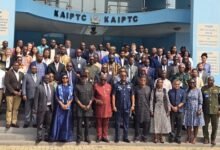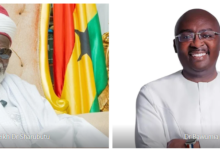2-day training for journalists ends in Accra

The Ghana Journalists Association (GJA) has begun a massive drive to bring all media workers under its umbrella to achieve its unionisation agenda.
According to President of the Association, Albert Kwabena Dwumfour, the drive was essential to maintaining job security and better conditions of service for practitioners amidst rapid changes in the media landscape.
“It is clear that the internet has resulted in a radical paradigm shift that has profound impact on journalism and that is not only changing the way journalists and media workers work, but has put many jobs at risk as media convergence and multitasking have become the norm.
The unionisation is critical and we are taking all steps necessary to ensure the GJA attains unionisation status by next year,” he said.
Mr Dwumfour was speaking at the opening of a two-day training of selected journalists on “Digital Organising, Trade Union Reforms and Youth Recruitment” in Accra.
The workshop in collaboration with the International Federation of Journalists (IFJ) was to orient journalists, particularly those working online, on the need to ally with the GJA to formalise their activities and ensure sustainable remuneration.
It was also recruiting the trainees as ‘ambassadors’ of the Association to promote its work while deploying several strategies to enlist their peers into the GJA.
The president indicated that the current national executives intend pursuing a youth-driven agenda to push the watchdog role of the profession.
“We have decided to undertake a comprehensive social media drive targeted at the youth, and research shows that persons who are very active on social media are between the ages of 13-35, so we are targeting this group in all our progressive activities.”
Renowned Trade Unionist and Executive Director of Wassa Association of Communities Affected by Mining (WACAM), Daniel Owusu-Koranteng, said unionising the GJA was critical to addressing issues affecting journalists in its online space.
“Most of these journalists are recruited and tasked to produce content with no official contract or agreement whatsoever so bringing together their collective strength and knowledge would ensure the enormous benefit derived from the digital space,” he stated.
For his part, the Director of the IFJ Secretariat, Pa Louis Thomasi, said issues affecting the conventional media affected the online media as well and unionisation was the only way to protect the rights and welfare of journalists.
“Young journalists are the lifeline of the Unions and we must encourage them to join and remain in the unions to safeguard the profession.”
BY ABIGAIL ANNOH






